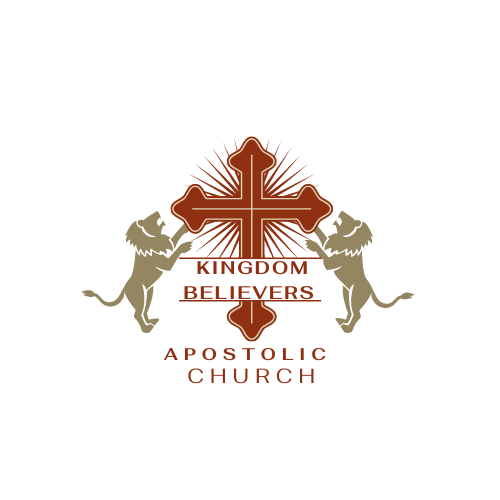"JESUS CHRIST - THE TRUE SACRIFICE”
JESUS CHRIST - THE TRUE SACRIFICE
Hebrews 10:1
"For the law having a shadow good things to come, and not the very image of the things, can never with those sacrifices which they offered year by year continually make the comers thereunto perfect."
Christ's sacrifice TAKES AWAY SIN: Sin of course is man's greatest problem. No matter what kind of religion a man has, if it cannot deal with sin, it is of no value. But by nature, man is a sinner and by choice he proves that his nature is sinful. It has well been said :
'We are not sinners because we sin. We sin because we are sinners."
1. THE NEED FOR A BETTER SACRIFICE (v. 1-4)
Why were the Old covenant sacrifices inferior? after all they were ordained by the LORD and they were in force for hundreds of years. While it is true that at times the Jewish people permitted these sacrifices to become empty rituals (Isa. 1:11-15), it is also true that many sincere people brought their offerings to God and were blessed.
The very nature of the Old Covenant Sacrifices made them inferior. The law was only, A SHADOW OF GOOD THINGS TO COME" and not the reality itself. The sacrificial system was a type or picture of the work our Lord Jesus Christ would accomplish on the cross. This meant that the system was temporary and therefore could accomplish nothing permanent. the very repetition of the sacrifices day after day and the day of Atonement year after year pointed out the entire system's weakness.
Animal sacrifices could never completely deal with human guilt. God did promise forgiveness to believing worshippers (Lev. 4:20,26,31,35), but this was a Judicial forgiveness and not the removal of guilt from people's hearts. People lack the inward witness of full and final forgiveness. They could not claim "I have no more consciousness of sins." If those worshippers had been "once purged [from guilt of sin]", they would never again have had to offer another sacrifice.
So the annual day of Atonement, did not accomplish "remission of sin", but only "reminder of sin". The annual repletion of the ceremony was evidence that the previous year's. Sacrifices had not done the job, True, the nation's sins were covered but they were not cleansed, nor did the people have God's inward witness of forgiveness and acceptance.
There was a desperate need for a better sacrifice because the blood of bulls and goats could not take away sins. It could cover sin and postpone judgment, but it could never effect a redemption. Only the better sacrifice of the Son of God could do that.
PART II
THE PROVISION OF THE BETTER SACRIFICE (v. 5-9)
It was God who provided the sacrifice and not men. The quotation is from Psalm 40:6-8, and it is applied to Jesus Christ in His incarnation (when He cometh into the world). The quotation makes it clear that Jesus Christ is the fulfillment of the old Covenant Sacrifices. The word sacrifice refers to any of the animal sacrifices, offering covers the meal offering would be covered in the word sacrifice(Heb. 10:5). Each of these offerings typified the sacrifice of Christ and revealed some aspect of His work on the cross (Lev. 1-7).
The phrase "a body hast thou prepared me" (Heb. 10:5), is not found in the original quotation (Ps. 40:6) reads: "mine ears hast thou opened." The writer of Hebrews was quoting from the Septuagint, the Greek translation of the Old testament. How do we explain the variation? Some connect "mine ears hast thou opened" with Exodus 21:1-6, a passage the describes the action of the master whose servant did not want to be set free. The master bored hole through the earlobe of the servant which was a sign that the servant preferred to remain with the master. The ideal is that our Lord was like a willing servant who had His ears bored (pierced).
The problem with the explanation is that only one ear was bored (pierced) while the verse (Ps. 40:6) speaks of both ears. Also the verb used in exodus 21, means "to pierce" while the verb in (Ps. 40:6) means "to dig". Our Lord was a servant but it is not likely that the writer has this in mind. Probably "open ears" signified a readiness to hear and obey the will of God (Isa. 50:4-6). God gave His Son a prepared body that the Son might serve God and fulfill his will on earth. Our Lord often referred o this truth (John 4:34; 5:30, 6:38, 17;4).
Of course, the same Holy Spirit who inspired Ps. 40, has the right to amplify and interpret His Word in Hebrews 10. "Open ears" indicates a body ready for service.
Twice the writer stated that God "had no pleasure" in the old covenant sacrifices (Heb. 10:6,8). This does not suggest that the old sacrifices were wrong or that sincere worshippers received no benefit from obeying God's law. It only means that God had no delight in sacrifices as such apart from the obedient hearts of the worshipper. No amount of sacrifices could substitute for obedience (I Sam. 15;22; Ps. 51:16-17; Isa. 1:11; Jer. 6:19-20; Hos. 6:6; Amos 5:20-21)
This is part One of this lesson. KEEP THE FAITH!!
Love
Bishop T. W. Jackson I, ThM

